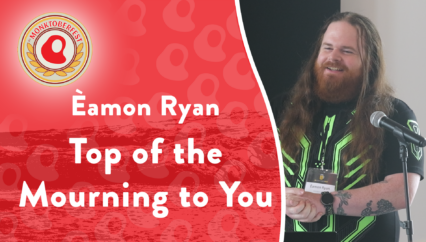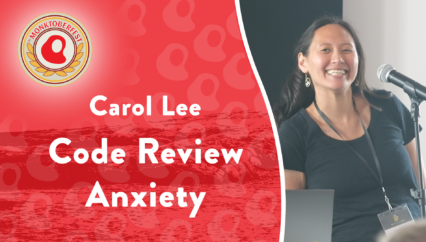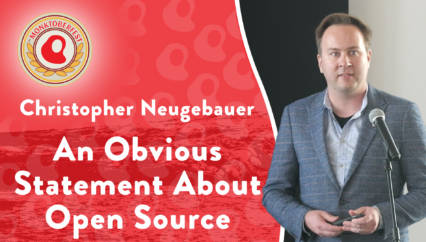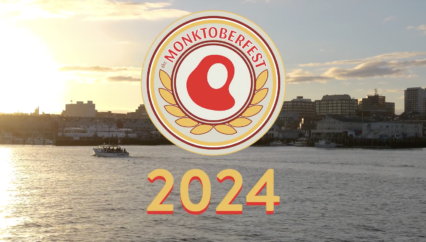The word “culture” is overloaded. Culture can mean a certain social background – the media you consume, the education you receive, the jargon you parrot. In this context, hiring for “culture fit” is a surefire way of reinforcing the existing biases of the tech industry. At the same time, culture can also mean the norms and ethos that govern a group of people. In this context, culture fit does matter. This talk is about the role values play in the identity of an organization. It’s also about the gulf that often exists between what leaders say they value and what they actually value, and how this misalignment is the real thing that causes disillusionment and burnout. And finally, it’s about how taking a good hard look at your own values and working to close that gulf will lead to more cohesive teams and more functional organizations.
Transcript
So before I start, I need to give this statement that this talk is reflective only of my views and not those of my employer. In fact, this is not reflective of any of my employers, past or present, which is kind of the problem when we’re going to be talking about values. OK, I’m Jenny, it’s not really important where I work. Let’s get started. So I’m a software engineer, and I studied computer science, right out of high school. I had no idea what I wanted and for some reason that the advice that people give to precocious try-hards is to go to business school. Business school and I did not get along, and people were giving advice on skirt length and handshakes and all of that kind of thing, and I remember this like resume-writing workshop where they gave us advice. I mean, it was like, hey, you should put your hobbies and sports and clubs and stuff like that on a resume, because you never know, somebody’s looking at it also plays lacrosse or, like, did model UN and they might hire you for it. Which if you think about job-hunting as a like zero-sum game theory, whatever, that’s fine advice to give to a bunch of terrified freshmen, like I get it. The problem is we also have to take a mandatory human resources class and there was never any point in that class where they’d be like, hey, don’t hire somebody just because they refuse to play golf with you. That’s a having said that, I do like video games, sci-fi, fancy and rock-climbing, please hire me, I’m very good at cross-culture capitalism.
So what my school was trying to do was give a shortcut to culture fit. So like when hiring what they’re really asking is, could I be struck in an airport with this person? Can I get a beer with this person? And you like people who have similar hobbies, went to similar schools, indulge in similar vices, etc. Long after HR is like, hey, you can’t recruit from just like the one elite university anymore, sports culture are really reliable indicators of things like class and race, because there’s not a lot of poor kids who played hockey high school, because hockey is extremely expensive. And this kind of culture fit game really, really sucks. One it sucks morally, and I take it that you agree with me that diversity and inclusion is important, because if we don’t, that’s way more than I can cover in the next 15 minutes. It’s like somebody who doesn’t have the right pedigree with the background and like frankly it also sucks for the company because if you’re not hiring from the majority of the population, you’re just missing out on talent and you lock into tunnel vision, because Apple is what it means in California for Airtags being us oohed by stalkers and domestic abusers, this is an outcome that is as predictable as what’s ghastly. The fact that Airtags were released without security features, means that engineers, Product Managers, all looked at this thick and said, yup, that’s fine. Anybody who did sound the alarm I’m sure was ignored. And I’m sure that most of those people have not had stalkers themselves.
So OK, culture fit is not a great criteria for hiring. However, every time I’ve looked for a job, the most important thing I look at is the company culture. Like we’ve all experienced toxic work cultures, Eamon talked about several of them earlier and any job, like where I have felt like the culture was riding me down is soul-crushing, right? Seeps into everything you do, feeling demoralized and drained, and on the flip side, any job I’ve loved I’ve loved because of the culture. I sometimes get to be picky about where I work, and my job always does come down to culture and so culture does actually matter. So I guess what I’m saying is hiring someone to fit into a culture is bad, but interviewing for a culture you want to fit into is good? I guess? The problem here is actually the work culture is extremely overloaded and if you ask people what it means, you’ll get like 7 different definitions. So let’s unpack this a little bit. And this may shocker, I read a lot about culture, I’d showed you the titles of the books I’ve read so you don’t have to.
So culture is the norms and values of a community. The reason I like this definition is because it turns something quite amorphous and vague into like various components, right? Norms are the things you do, the values are why you do it and the community is what’s included.
Norms are the things you do that’s taken for granted and you don’t think about the fact that you do it until somebody doesn’t it. Largely people end up adapting to it or face consequences from the dominant group. So it could be everybody should listen to customer calls even if you don’t work in support or sales. It could even be we look at content in Hacker News, and use that in software development. It couldn’t be, but it should. Something being a norm doesn’t mean it’s good, right? Everybody agrees that that’s not great and we should probably fix it at some point, I don’t know, but like nothing happens and new people are onboarded to this being the new normal and tests continue to.
A value on the other hand is the thing that we think of as being like capital-G good, right? It is the why, it’s inherently scripted. It’s it’s the thing that you’re willing to pay a cost to actually uphold, because not sticking to your value feels wrong and it hurts.
Your knowledge could be that your value could be like knowledge-sharing through documentation, which slows you down in the moment, but makes you stronger in the long run. It could be ship early and often and the thought of polishing a product until it’s completely perfect feels agonizing to you. The common values that we see is we don’t use tools that we’re not meant to hear and we’d rather build a building from scratch than get a vendor, right? I don’t have to agree with your values but I can see that that’s something you hold really dear.
So how do norms and values impact culture fit?
So if you drill down into a specific way that hiring for a culture fit results in bias, what what’s actually happening is you are systems want to perpetuate themselves, so they draw people in to agree that the perfect fit is normal and fine. Tech stack and philosophy on one end and is this person hiding all the way over there with all manners of implications and the thing that’s like when you’re looking for norms in a manual, it’s not just people with different norms as I said earlier. It’s also not very useful it doesn’t really tell you that much about what kind of person this person will be when the stakes are high and the pressure is on and you’re facing an entirely different problem. On the other hand, not only can people with all kinds of backgrounds create stronger values so I suggest we think much less about culture fit and much more about values alignment.
But unfortunately, like values are kind of tricky to talk about, right? For one thing, personal values are so often so core and deeply held to your understanding of the world that, like, you might not even be able to name what they are. You just know in your gut something feels wrong.
Organizational values have the opposite problem, because organizations are more than happy to tell you all manner of values, but it’s largely a marketing exercise.
55% of like Fortune 500 countries site integrity as a value. And I’m sorry, I read the news. I know the outcomes. That’s not right, right? Company talk about value to attract talent, attract customers and to hold the moral ground against competitors, and like we’ve all seen job postings from the company that said we really value transparency, but I’m not going to tell you what the salary range is.
This quote is from a company that makes software security. The software doesn’t make it clear that it’s surveilling everything that you do and everything you touch, but don’t worry, it’s been surveyed to independent trust, right?
It’s tempting to like dismiss corporate values irel vent — founders or early key employees, they might be implicit and unspoken and they’re probably not lit up in neon on company walls, but they’re deeply built into the core assumptions of how decisions get made and the funny thing about implicit values is people inside of the organization are extremely good at understanding what they are, because they see firsthand decisions being made, the payments that are being made and sanctioned. If team work is one of your values and there’s one engineer and disappears into a cave and comes back with 10,000 lines of code and is heralded as a hero, you probably don’t value teamwork and only one person knows it.
[applause]
So when you see a disconnect between like an organization’s stated values and the revealed values a few too many times, it’s easy to be jaded. But even if you know intellectually that the disconnect exists. It can still be really damaging to trust.
I have worked in some big tech and nonprofit and open source and all sorts of like very mission-oriented space the and I chose to work in these spaces, because in my heart of hearts I’m a true believer, no matter how much I tend to be cynical about the improbability and the manager said the right words and I wanted to believe, you know, and it doesn’t always work out.
Increasingly there’s research that says that burnout isn’t just about working too much. It’s actually about moral injury, right?
[applause]
It’s about the psychic harm of not standing up for your beliefs and watching unethical behavior take place and also feeling betrayed by your self. Imagine you chose to work at the ACLU because you really believe in its mission about protecting civil rights and once around there, they turn around and hire the second-largest union busters in the country.
It cuts deepest in the people who believed the most, the people like who will be burned out the hardest and when the gap between your stated values and your revealed values becomes like a chasm, the distrust leads a trail of destruction in your future. When I’ve personally been frustrated by these gaps, what I really wanted to do was metaphorically shake leadership and be like, just admit you don’t care, right? Like, go install the analytic software that reports if your users are hovering 0.3 seconds over the — but stop saying it’s about privacy. If that’s what you’re going to do, at least admit it.
But like that’s what it’s meant to do, it wouldn’t accomplish anything, right? Not just because this is the opposite of effective communication and marshal Rosenberg pointed this out to me, but be like by and large, I do believe that people mostly hold the values they say they do, because everybody is the hero of their own story, and everybody believes that they’re acting with good intentions to make the best decisions they can. And I get so mad in these situations because I’m like, why can’t people just do the thing that they know is right.
But honestly it’s not that different as saying of being like, well why can’t software developers write secure code, right? What we actually want to do is make it harder for people to make mistakes and design a system in such a way that the easy path is the right path. If values were easy to stick to even when the going got tough, they wouldn’t be values, they would be like rationalizations. Your values should be the thing that — and people should have the moral courage to do the right thing, but they, we, often don’t.
So if I’m going to work by mef S, I wear a mask. If I’m with a bunch of coworkers who are in the wearing masks, I’m also more likely to not wear a masker. I really do feel — sometimes I don’t value it more than I value social optimism. I don’t value this about myself. But in 2020 and 2021 it was much easier to wear masks everywhere. But the fact that like the cost of a moral choice can rise also means that it’s possible for it to fall.
So for example, like many people value equitable practices, when they find out that a coworker who comes from a marginalized group makes much less than they do, they’re genuinely upset. A lot of people wouldn’t bring it up, because the social taboo is huge and if someone is paid significantly more than their peers, there’s all sorts of guilt and fear and shame wrapped up in that, of like, what if they get mad at me, what if people don’t deserve what I make, but if you talk about compensation, it’s no big deal, and everybody acknowledges that it’s like a systemic problem, then the cost of that taboo seems a lot less steep. So this is the work that we have to do. Culture change is creating the conditions that make it easier to choose to do the right thing. It’s closing the gap between your enacted values and your stated values.
But sometimes it’s not that you don’t share any values. It’s that it’s hard to stick to them. So values are important. Gaps between stated values and revealed values, sticking to your values is hard and we need to change the culture easier, so what are the levers available to you to make it easier?
OK, back to where I was at the start for a minute.
Culture is made up of norms and values. Norms are often driven by values, but different values can result in the same behavior. So let’s take the example of writing documentation, it can be driven by a slam of institutional knowledge, where you’re having to write docs because you want to share the information with your future selves and your colleagues and even after you leave, right? A different organization the practice of documenting stuff can be driven by the stuff that when something goes wrong, someone has to take the blame. It’s a warped view of accountability but I see it everyone, so documenting becomes the norm because everybody is trying to cover their butts, to prove that there’s nothing they could have done to prevent an incident and the other team over there didn’t document it properly and just check the version history, right? And these can become extremely different company cultures.
The same it also means that norms are easier to change than values. Like people are more many to change their behavior and their beliefs because they can rationalize a new behavior in some other way that totally becomes normal and changing norms and terms of course makes it easier for the people who were previously scared of making the right choices to do so.
But the fact that norms are easier to change than values also means that they are more brittle.
And the aftermath of the George Floyd protests of 2020, companies rushed to issue statements and commit to listening and doing better and set up ERGs and appoint DEI leads and in the last 18 months, after like incredibly absurd fear mongering of the specter of harming America and all these reproductive rights we’re seeing company after company roll back these programs and lay off DEI teams, and it seems like caring about equity has a shot of becoming normalized for a hot second, but the norm as was still new and fragile and it was still driven by the old value of maximizing PR, and a few hundred thousand layoffs, you know, it was easy to reverse the norm before a new generation of workers who grew up with it came to expect it. So that’s the Catch-22 of culture change, right? Fully integrating a new norm is incredibly difficult without changing underlying values, but values aren’t likely to change until the norm becomes normalized. So it needs constant reinforcement.
So what does this actually look like, right?
First, you have to figure out what your organization’s values are. No, wait, hang on. In the tao, we use house indexing. Step 0, you’ve got to figure out what your own values are. Introspection can be scary and unsettling.
Although my that I also fervently believe is that you should not be allowed to start a company until you’ve been to therapy.
[applause].
Therapy obviously can’t fix everything. But I feel attached to this. But it is one of the, like, few mechanisms we have as a society where we can be guided to build software and if you want to be able to develop skills for emotionally fraught situations.
Being a founder is an incredibly stressful and taxing jobs and people will — but you need to learn some coping mechanisms before you like start yelling in a meeting. Go to therapy. Figure out your values in therapy.
Now, step one, you figure out what your organization’s values are. And I’m specifically talking about the values that are currently enacted and no the ones you wish for, right? Be brutally honest, and watch for especially places where originally key values have become corrupted. So like is your value being deliberate in your decisionmaking leading to analysis paralysis. So that you’re treating every conversation like there’s a winner and a losser, and the winner is right and the loser is wrong. And especially, ask the organization what they think the organizational embodies and cross your fingers that there’s still enough trust that they will tell you the truth. Because remember differentiating between what the leaders say their value and what we know they actually value.
Once you’ve done that, Step 2 is deciding values are not the ones you want for the org. If there’s a value you want to change or one that’s missing, look for the day to day structures or processes that are either enforcing or challenging that value.
So I strong values of team work and organization except for the cutthroat sales team. When leadership sat down to really look at the problem, they realized the compensation was the key issue, because salespeople earn individual commissions, which is very normal.
And so despite all the initial grumbling and push-back exact switch and now the team has a whole got bonuses based on how much everybody sold and the new structure even included support stuff and admin and all the coordinators that feed into that. So this meant not only salespeople were incentivized to help each other and learn strategy. The people who prefer to be cutthroat eventually got fed up with this nicer way of doing things and they left.
Individual commission is like an extremely normal practice and I’m not saying it’s purposely bad, but for this particular org, that practice was harmful and it presented them from growing. And the thing you need to do in Step 2 is figure out what is your version of the norm that’s stifling growth and pulling away from your values. What are you doing that that’s like what everybody else does, but in the kind of environment you want to build and how do you find your equivalent of collective commission.
Now, I know so far I’m assuming that we have some sort of leadership role in your organization, but like what do you do if you’re an IC, right?
ICs obviously have a huge part to play in developing and upholding our companies’ values, but I am pure — this is because like accountability and being enforcement is the things that are paramount. If leadership just walks past bad behavior or even rewards it, the new norms aren’t going to take hold and you’ll just regress to the mean. Like, using the code review example if you’re trying to get people to take code review more seriously and then there’s rubber stamps and the manager doesn’t care, eventually everybody will fall back into, yup, looks good to me.
And knowing that ICs can’t unequivocally thank themselves, sucks. I want to believe in the narrative of the little guy who took on the system and won, I want to be the Katness, once in a while the stars align, and the right person finds the right relationships and is willing to throw themselves on the pyre over and over and over again and once in a while, someone gets through.
But I don’t think that’s a stable strategy because the. So that’s the bad news. The good news is twofold. There’s the product level, the team level, the office level, the division level and so as an IC, you may not be able to change the whole company, but carvings out one corner that you can protect from the rest is actually still really worthwhile.
The second thing is in my experience a lot of the time leadership does know that there’s a problem and they also have no idea of what they’re doing, so if they seem like they’re ignoring it, it’s often not that they don’t care, but they’re scared.
Resisting corporate culture is difficult and what you can do is gather other ICs, talk about your concerns, bring consensus and if you get dismissed, that’s also quite telling about what kind of leadership you have.
That said, all of this work is exactly the kind of unpaid org that can be a huge strength for the people taking it on. For them, unfortunately, it is a matter of survival in the organization and they don’t have a choice.
It’s deeply unfair that most organizations don’t reward this work and that like if you are busy trying to fix the culture, we don’t get to work on the shiny features that gets you promoted. This is a thankless role. That’s not something that I have something to changing hearts and minds on. But oftentimes you find yourselves in these positions where you have to do it and you don’t have a choice, either out of necessity or you can’t help yourself. And so if you are going to do it, I want you to be armed.
Step 2, find the gap and change the norms. Once you’ve done that, very easy, right?
Step 3, is make reflecting part of your values, like your regular ritual. So I’m talking about like the quarterly kickoffs and the annual planning and the hiring plans and the performance evaluations and the job matters. Because you’re not going to adhere to your values in a perfect way and that’s OK. As long as you have a habit of reflecting on them. It’s so easy in the chaos of running a business to lose care on how your values are drifting.
So to combat that, make it part of the norm of running your business to consider your values. You can never have your values fully aligned, they probably shouldn’t be, your values are not your coworkers’ values, not your manager’s values, not your CEO’s values, no matter how much they overlap and that is healthy. Dogmatically if you’re adhering to anything, the most part of this is regularly negotiating and have anating the tension between all of those values to make sure that you as a group have not strayed from your views too often.
You need to figure out how to solicit and listen to feedback. And the thing that I would love if you remember for one thing for all the years to recognize is the expected return of going to leadership and giving them bad news is terrible, right? Like risk pissing off your boss for the sake of telling the truth? Why? Even if you’re not directly retaliated against, which you often are, this can still be really damaging to your standing, if you’re the person who always happens the bad news, if you’re from a marginalized group and you’re talking about how marginalized employees are being treated you are dismissed for being political and biased and if someone is speaking up in spite of all that, they’re speaking up because they general genuinely want to help an organization get better.
Even if it’s angrily delivered by someone who’s been really, really hurt. I’ve been part of a bunch of organizations and there were periods of time when the questions that were being posted in the AMAs were kind of mean. The organization was responding to a lot of rupture and change and the people in them were struggling, too, and just as the organization’s response to this, by reducing AMAs and imposing restrictions and generally cutting off the feedback. Which I don’t necessarily think that that was the wrong response, because not all venues are set up for feedback and you need to be thoughtful about how it’s brought up so it’s not — it turns into an like an unproductive echo. But in none of those situationses with was it ever acknowledged that these — they were the culmination of people having tried to raise the alarm over and over elsewhere and being ignored and now all of that frustration was running over. And in some cases there was a lecture ever things — and the people left. And so like one of the key skills leadership needs in this situation is to recognize that when they themselves are being defensive it’s because they’re feeling cornered and attacked and you need to be able to learn how to notice that feeling so that you choose not to react in the moment, because the power differential between leadership and IC means that when a leadership lashes out, it’s not just a like momentary conflict, it’s a signal to your team that this is not a safe place to provide feedback and your team learns from that.
When you’re confronted with a tough piece of feedback, regardless of whether you agree with it or not, you don’t have to have an answer or solution in the moment. But you do have to acknowledge that it’s valid feedback and taking the time to follow up.
So again, my final thought is this: I’ve spent a lot of time thinking about values in the workplace in my career, because whether I like it or not, work is a huge part of our lives, right? And it doesn’t go into a vacuum. And for me at least it often feels like a place where I have agency to effect change in a way that I sometimes don’t have elsewhere. I said at the beginning that culture is the norms and values, and it’s the norms and values of the community.
Thankfully, we’re mostly past the collective delusion where we think like work is family, but the workplace is still made up of people and it’s a network of relationships, and this community can be a network of caring if you will. Right? One thing that I permanently find a lot of comfort in when I’m struggling with burnout is stepping back from the fight with institutions and finding ways to invest in my coworkers instead, because changing the culture of an organization is hard, even with leadership buy-in. What we can do is finding joy in lifting each other and in being supportive and sharing in triumphs and commiserations and solidarity and all of the memes.
And like that is a thing that will make a difference. The thing about values is that they’re prescriptions of what you find good in the world. They’re the things that you want to fight to preserve and to advance and whether you have that at work in beyond, the relationships are going to be what form the basis of that change. But ultimately your culture is the water you swim in that you don’t actively intentionally tend to it, you’re probably not going to — and neglecting the role of values from your culture makes it a lot harder to see when all of it starts to fray and those terrors will continue to pull and rip in the dark until it’s way too late to repair them. So it is well worth doing the work of bringing them out into the light, and this is the work. Thank you.







